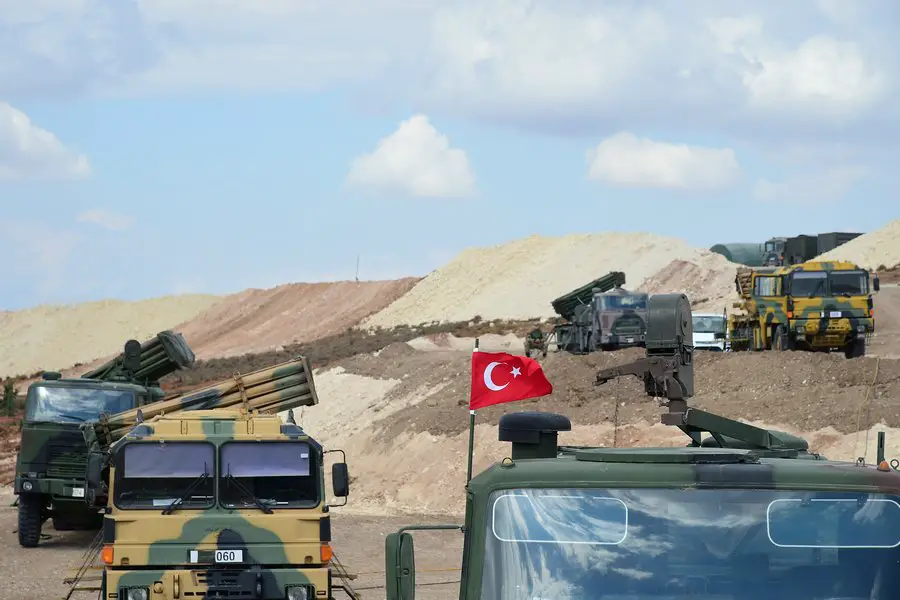Turkish military personnel began to set up observation points in Syria’s northwestern Idlib province, the General Command of the Turkish Armed Forces said in a Friday, October 13 statement.
The statement said that elements of the Turkish Armed Forces (TSK) moved into the Idlib Tension Reduction Zone on Thursday to ensure the establishment, observation and continuation of the ceasefire within the framework of the Astana talks process, adding that the TSK will also deliver humanitarian aid and provide appropriate conditions for displaced people to return to to their homes.
The TSK earlier said its forces in Syria would abide by rules of engagement agreed with Russia and Iran.
Turkish military personnel first entered Syria on October 8 to carry out reconnaissance.
In September, Turkey, Russia and Iran announced they had agreed to establish a de-escalation zone in Idlib. Turkey alongside its Free Syrian Army allies will monitor the zone on the ground with Russia providing air support. Iran and Russia are to control Idlib’s borders.
Idlib is controlled by various groups opposed to Syrian president Basher al-Assad, but significant territory in the province is held by Hayat Tahrir al-Sham, an alliance of jihadist groups headed by Jabhat Fateh al-Sham, al-Qaeda’s Syrian affiliate. The alliance includes including many fighters from Turkey-backed Ahrar al-Sham, and is currently led by Abu Muhammad al-Julani, leader of JFS.
The Turkish operation is also directed at the majority-Kurd Efrin Canton which borders Idlib.
“(It is) in line with Astana 6 resolutions to ensure the area is protected from Russian and regime bombing and to foil any attempt by the separatist YPG militias to illegally seize any territory,” Mustafa Sejari, a senior official in Liwa al-Mutasem, an FSA group involved in the operation, told Reuters.
Witnesses told Reuters that a convoy of Turkish military vehicles was heading toward Sheikh Barakat, high ground which overlooks rebel-held territory and Efrin.
Turkey sees the Kurd-led Syrian YPG – which controls Efrin – as an offshoot of the banned Turkish PKK, which has waged a decades-long insurgency in southeastern Turkey. The PKK is regarded as a terrorist organisation by many nations including the U.S., but the YPG makes up the backbone of the U.S.-led Coalition-supported Syrian Democratic Forces.
“The Idlib operation will allow us new initiatives on this issue,” Turkish president Recep Tayyip Erdogan said recently, and Turkey’s presidential spokesperson Ibrahim Kalin said plans are in place for a military operation against Efrin.
Senior YPG figures including its leader Sipan Hemo reportedly met with Russian defense ministry officials in Moscow recently. The YPG reportedly sought guarantees that Turkey would not intervene in Efrin.




